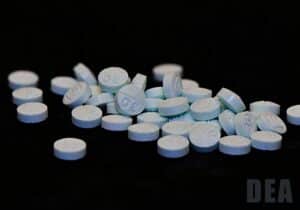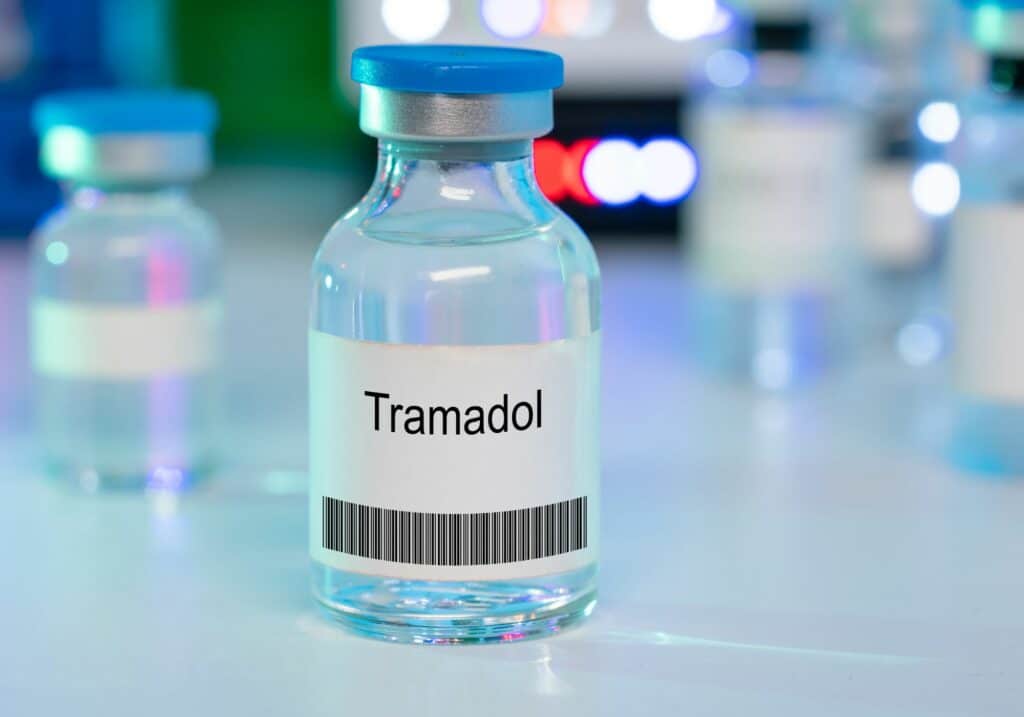Table of Contents
Tramadol, a medication used for moderate pain, carries a misconception of being less addictive than stronger opioids. However, its potential for addiction should not be underestimated. Even with its lower potency, tramadol can lead to dependency, and individuals may not realize the risk involved.
Addiction to tramadol can develop gradually, and misuse increases the risk, even when taken as prescribed. Identifying an addiction to tramadol or any opioid is vital for recovery. Iris Wellness Group supports individuals battling tramadol addiction in Chattanooga, TN with dedicated outpatient rehab services, aimed at saving lives and promoting healing.
What is Tramadol?
Tramadol, a synthetic opioid, is indicated for the treatment of moderate to severe pain, commonly after surgery. Though less potent than other opioids, the risk of misuse and addiction due to its euphoric effects persists, highlighting the need for precaution in individuals susceptible to substance abuse.
Available under various brand names in the U.S., including:
- ConZip
- Ryzolt
- Rybix ODT
- FusePaq Synapryn
- Ultram
- Ultram ER
Frequent or improper tramadol use can lead to physical or psychological dependence, underlining the importance of controlled medical supervision.
Tramadol’s potential harmful interactions with other medications, such as SSRIs and MAOIs, necessitate a comprehensive review of a patient’s medical history by healthcare providers. Despite its lower addiction risk compared to other opioids, the significance of monitoring and offering treatment for those developing an addiction to tramadol remains critical.
Tramadol Misuse And Abuse
Misusing or abusing tramadol elevates the likelihood of developing an addiction, a scenario not uncommon even among those who follow their prescription closely. With continued use, individuals may find themselves needing increased doses to experience the medication’s effects, signaling the onset of tolerance and the potential for dependence.
As tolerance to tramadol heightens, ceasing its use abruptly can trigger withdrawal symptoms, such as irritability, depression, and flu-like signs, indicating a dependence on the drug. Addiction to tramadol, a multifaceted issue influenced by genetics, social environment, and psychological factors, is characterized by an overwhelming desire for the drug, strained relationships caused by its usage, and a loss of control over consumption.
Signs and Symptoms of Tramadol Addiction
Recognizing the shift from medically advised tramadol use to addiction is essential. Tramadol addiction, like other opioid dependencies, may not be immediately obvious to those affected. Key indicators of tramadol addiction include:
- Keeping tramadol on hand when not needed
- Engaging in unusual or risky behaviors
- Experiencing difficulties at work or school due to opioid use
- An inability to quit tramadol
- Spending excessive amounts of money and time on obtaining tramadol
- Experiencing strong urges to use tramadol
- Needing more tramadol to feel its effects
- Continuing tramadol use despite recognizing its negative consequences
- Prioritizing tramadol over other important activities and obligations
- Withdrawal symptoms when stopping tramadol
- Missing important events or neglecting responsibilities
- Social withdrawal
- Legal problems related to drug misuse
- Being defensive about drug use discussions
- Minimizing the impact of tramadol on your life
- Denying the problem of drug misuse
- Showing a lack of motivation
Physical signs that may indicate tramadol addiction include:
- Nausea or vomiting
- Small pupils
- Drowsiness
- Changes in appetite
- Slurred speech
- Difficulty with coordination
- Headaches
- Weight loss due to changes in diet
- Emotional instability
These symptoms are not exclusive to tramadol and can signal addiction to various substances, underlining the importance of early detection and intervention. A professional evaluation can provide an accurate diagnosis and pave the way for effective treatment. Prolonged misuse of tramadol can lead to serious health issues, such as seizures. Recognizing and addressing signs of tramadol addiction early is crucial for health and well-being. Iris Wellness Group offers dedicated support for those looking for tramadol addiction treatment in Chattanooga, TN. Contact us at 423-919-9549 to start on the path to recovery.
How Does Tramadol Addiction Happen?
Tramadol addiction develops as the drug modifies how the brain perceives pain, similarly increasing serotonin and norepinephrine like antidepressants, thus causing euphoria similar to heroin. Its analgesic and calming effects encourage misuse to replicate these sensations, leading to dependency. Misuse, including altering dosage or frequency, fosters both physical and psychological reliance. Our center, staffed with experienced professionals, tackles prescription drug addiction through treatments that cater to both the physical and mental aspects of tramadol dependency, guiding individuals towards a path of recovery.
Effects of Tramadol Abuse
Tramadol is recognized for its lower addiction risk as a Schedule IV drug, yet its misuse for the euphoric and calming effects it provides is common. Such misuse, especially in quantities beyond recommended levels, can lead to grave side effects like seizures and respiratory depression, potentially driving users toward stronger opioids or illicit substances to replicate the euphoria.
Excessive use of Tramadol, a CNS depressant, can dangerously slow down heart and lung function, with overdose symptoms that can be lethal, including:
- Drowsiness
- Unconsciousness
- Coma
- Seizures
- Respiratory depression
- Low blood pressure
- Slow heart rate
- Sweaty or clammy skin
- Muscle weakness
- Constricted pupils
It’s crucial to recognize these risks and symptoms to avert the life-threatening outcomes of Tramadol misuse and overdose. Iris Wellness Group provides thorough outpatient tramadol addiction treatment in Chattanooga, TN. Contact us at 423-919-9549 for support on your path to recovery.
Common Drugs Mixed with Tramadol
Tramadol is frequently misused in combination with other drugs, often to enhance its euphoric effects or for self-medication. Notably, Tramadol is commonly mixed with:
- Alcohol
- Other opioids
- Sedatives, including benzodiazepines and sleeping pills
- Cold medicine
Combining Tramadol with these substances, particularly other CNS depressants such as alcohol, opioids, and sedative hypnotics, greatly elevates the danger of adverse effects. Such interactions can cause respiratory depression, increase the likelihood of seizures, and amplify the risk of overdose, posing significant health risks.
Tramadol Withdrawal
When someone becomes dependent on tramadol, stopping its use triggers withdrawal symptoms. This happens because both the body and mind have become accustomed to tramadol’s effects. Without the drug, individuals may experience a difficult adjustment period marked by a longing for the euphoria tramadol once offered.
The discomfort of tramadol withdrawal, encompassing both physical and psychological symptoms, can be a significant barrier to seeking treatment. This phase reflects the body’s effort to adjust to the absence of tramadol, presenting challenges that can make the path to recovery seem formidable.
What Does Tramadol Look Like?
Tramadol comes in various forms to suit different treatment requirements, including:
- Tablets
- Extended-release tablets
- Extended-release capsules
- 24-hour extended-release capsules
- Oral liquid
- Suspension
The appearance of tramadol varies depending on the manufacturer and brand. Tablets and capsules are usually round or oval, predominantly white, but may come in various colors to distinguish between strengths and brands. Liquid tramadol or suspensions are provided in small bottles, complete with droppers or syringes for accurate dosing.
The onset of tramadol’s effects is gradual, with the peak impact occurring about four to six hours after intake. It functions by replicating the body’s endogenous pain management processes, which can induce feelings of calmness or euphoria.
Tramadol Addiction Treatment
Tramadol addiction is addressed through a comprehensive approach that integrates various treatment modalities:
- Outpatient Programs: Including outpatient detox, standard outpatient rehab, Intensive Outpatient Programs (IOP), and Partial Hospitalization Programs (PHP) tailored to fit different stages of recovery.
- Medication-Assisted Treatment (MAT): Employs FDA-endorsed medications like naloxone, buprenorphine, and methadone to mitigate withdrawal symptoms and diminish cravings. Naloxone acts by obstructing opioid receptors, lessening tramadol’s effects, whereas buprenorphine and methadone help in managing cravings and easing withdrawal symptoms, fostering sustained recovery and lowering relapse risks.
- Psychotherapy: Techniques such as Cognitive Behavioral Therapy (CBT) and Dialectical Behavior Therapy (DBT) are instrumental in uncovering the root causes of addiction. These therapies aid individuals in recognizing triggers, crafting effective coping strategies, and promoting healthier lifestyle choices.
- Counseling: Provides a platform for open communication and shared experiences, offering valuable insights from others who are navigating similar journeys. Counseling sessions, whether individual, family, or group, are essential for emotional support and reinforcing commitment to recovery.
This holistic approach ensures that both the physical and psychological facets of tramadol addiction are addressed, equipping individuals with the necessary skills and support to overcome their addiction and proceed towards sustained recovery.
At Iris Wellness Group we specialize in outpatient tramadol addiction treatment in Chattanooga, TN, offering a personalized program that combines medication management, psychotherapy, and counseling. We’re dedicated to assisting you in reclaiming a drug-free life, guiding you through each step of your recovery journey towards a brighter future.
Tramadol Addiction Treatment in Chattanooga, TN At Iris Wellness Group
Iris Wellness Group we specializes in outpatient treatment programs for tramadol addiction in Chattanooga, TN. Our comprehensive approach is designed to address the complex nature of addiction in a calm and supportive environment, crucial for both healing and recovery. With a team of skilled professionals, we offer a variety of therapeutic options, including personalized therapy sessions, group therapy, holistic approaches, and involvement of family, all aimed at achieving sustainable recovery and enhancing well-being.
We understand that each person’s recovery journey is unique. Therefore, our treatment plans are adaptable, accommodating the needs of those struggling with long-standing addiction as well as those confronting recent issues. Our goal at Iris Wellness Group is to make a meaningful difference in lives by not just treating the symptoms of addiction, but by equipping our clients with the tools and resilience needed for a fulfilling, substance-free life. Contact us at 423-919-9549 to embark on your journey toward recovery and discover a new beginning with our specialized tramadol addiction treatment.











